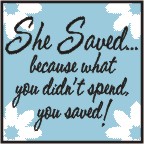Feed Me Books Friday: Unless You Enjoy Counting to 600
Friday, May 13, 2011
You Need Another Reference
 The other day, B announced that he could keep a balloon in the air by swatting at it for 10 minutes without letting it hit the ground. I suggested that was a pretty long time and he might want to start a little easier. He asked the question that so many parents have tried to explain accurately: “How long is it?” I’ve tried things like, “As long as it takes to drive to the library,” “Long enough to sing 4 or 5 Wiggles songs,” and even, “About as long as it takes to make macaroni and cheese.” But on this particular day, my response was, “Long enough to count to 600.” So of course, he wants ME to count to 600 while he swats at the balloon. No, thanks. It’s moments like these that we realize just how hard it is for our toddlers and preschoolers to develop an accurate concept of time. They certainly won’t have it down before kindergarten; in fact they’ll likely continue to hone this cognitive skill well into elementary school. Gains in mathematical understanding help with the short term measurements, but concepts of months and years and generations are still challenging. (By the way, I set the kitchen timer rather than counting, and he tired out before the 10 minute mark but definitely got a work-out!)
The other day, B announced that he could keep a balloon in the air by swatting at it for 10 minutes without letting it hit the ground. I suggested that was a pretty long time and he might want to start a little easier. He asked the question that so many parents have tried to explain accurately: “How long is it?” I’ve tried things like, “As long as it takes to drive to the library,” “Long enough to sing 4 or 5 Wiggles songs,” and even, “About as long as it takes to make macaroni and cheese.” But on this particular day, my response was, “Long enough to count to 600.” So of course, he wants ME to count to 600 while he swats at the balloon. No, thanks. It’s moments like these that we realize just how hard it is for our toddlers and preschoolers to develop an accurate concept of time. They certainly won’t have it down before kindergarten; in fact they’ll likely continue to hone this cognitive skill well into elementary school. Gains in mathematical understanding help with the short term measurements, but concepts of months and years and generations are still challenging. (By the way, I set the kitchen timer rather than counting, and he tired out before the 10 minute mark but definitely got a work-out!)Establishing a Context


When trying to explain a time period to a child, the best we can usually do is to help give them a frame of reference that they can relate to. As evidenced by my many attempts above, it doesn’t always work. Sometimes because the child has never really considered the time involved in the chosen reference. Other times, the question of time arises out of anticipation, which skews even adult notions of the passage of time. Our recent library find, How Long , by Elizabeth Dale both addresses the elusive understanding of time and captures a sentimental expression of the timelessness of a mother’s love. The story begins when Caroline (a young mouse) tries to figure out how long she has to wait when her mother says “in a minute.” She uses activities like painting, lining up toys, and digging to measure the increments of time her mother attaches to various activities in her day. At the end, Caroline asks how long she will be loved, and her mother changes her response from minutes to the abstract, as a mother’s love is immeasurable. She assures Caroline that she will love her for “as long as it took to make all the stars in the sky, and everything else there is.” This kind of explanation defies mathematics and hearkens more to the kind of estimations found in Guess How Much I Love You. The combination of both a teaching tool and a heartwarming bedtime story prompted me to add this title to our wish list, but not before we meet our renewal quota at the library! How long is 3 weeks, anyway?
, by Elizabeth Dale both addresses the elusive understanding of time and captures a sentimental expression of the timelessness of a mother’s love. The story begins when Caroline (a young mouse) tries to figure out how long she has to wait when her mother says “in a minute.” She uses activities like painting, lining up toys, and digging to measure the increments of time her mother attaches to various activities in her day. At the end, Caroline asks how long she will be loved, and her mother changes her response from minutes to the abstract, as a mother’s love is immeasurable. She assures Caroline that she will love her for “as long as it took to make all the stars in the sky, and everything else there is.” This kind of explanation defies mathematics and hearkens more to the kind of estimations found in Guess How Much I Love You. The combination of both a teaching tool and a heartwarming bedtime story prompted me to add this title to our wish list, but not before we meet our renewal quota at the library! How long is 3 weeks, anyway?
Appropriate for toddlers, preschoolers, primary grades. For some additional time-themed books and activities, check out Scholastic’s Ages and Stages article. , by Elizabeth Dale both addresses the elusive understanding of time and captures a sentimental expression of the timelessness of a mother’s love. The story begins when Caroline (a young mouse) tries to figure out how long she has to wait when her mother says “in a minute.” She uses activities like painting, lining up toys, and digging to measure the increments of time her mother attaches to various activities in her day. At the end, Caroline asks how long she will be loved, and her mother changes her response from minutes to the abstract, as a mother’s love is immeasurable. She assures Caroline that she will love her for “as long as it took to make all the stars in the sky, and everything else there is.” This kind of explanation defies mathematics and hearkens more to the kind of estimations found in Guess How Much I Love You. The combination of both a teaching tool and a heartwarming bedtime story prompted me to add this title to our wish list, but not before we meet our renewal quota at the library! How long is 3 weeks, anyway?
, by Elizabeth Dale both addresses the elusive understanding of time and captures a sentimental expression of the timelessness of a mother’s love. The story begins when Caroline (a young mouse) tries to figure out how long she has to wait when her mother says “in a minute.” She uses activities like painting, lining up toys, and digging to measure the increments of time her mother attaches to various activities in her day. At the end, Caroline asks how long she will be loved, and her mother changes her response from minutes to the abstract, as a mother’s love is immeasurable. She assures Caroline that she will love her for “as long as it took to make all the stars in the sky, and everything else there is.” This kind of explanation defies mathematics and hearkens more to the kind of estimations found in Guess How Much I Love You. The combination of both a teaching tool and a heartwarming bedtime story prompted me to add this title to our wish list, but not before we meet our renewal quota at the library! How long is 3 weeks, anyway? How was your Mother’s Day? Anybody come across an awesome book about moms or family relationships? Always on the lookout! (I got a lesson in my son's perspective as I spent last night wondering, How long until Blogger is back up?" If you came looking for a link up earlier, I apologize!)
Hourglass photo credit: fotopedia

























1 comments:
You are back! Hooray!!! Cant believe blogger was down all day.. I think a lesson in time was super important for everyone today!
Maggy x
Post a Comment